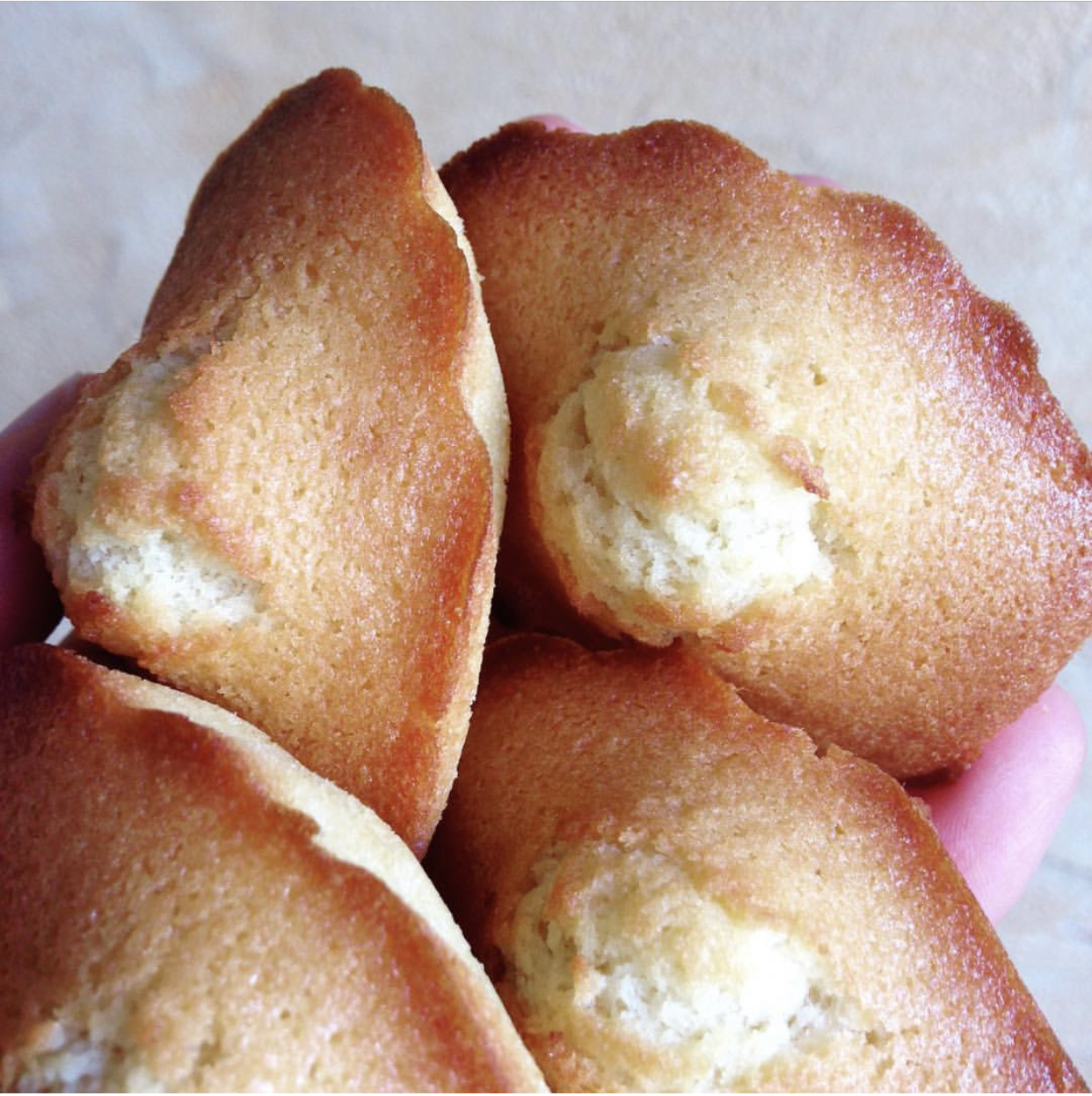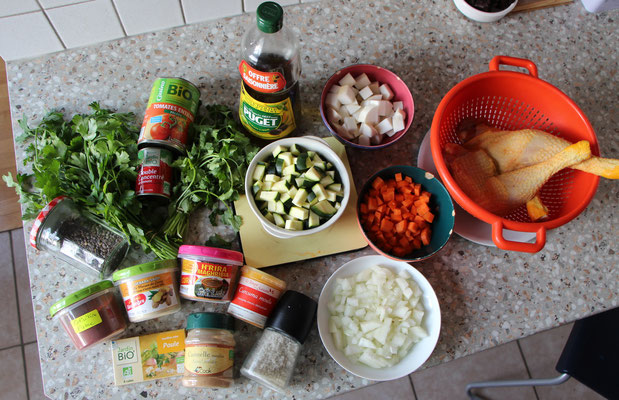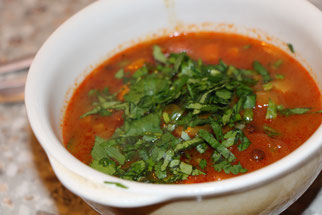March marks the celebration of Women and Francophonie and there’s no other person that we would like to feature more than our friend, Saliha Bala, actress of Les Franglaises and food blogger of On Dirait du Miel.

Saliha Bala was born and raised in France by Algerian parents. She is a graduate of French and European literature, grammar and poetry from La Sorbonne in Paris.
She started off as a French teacher and taught for 5 years. She later quit her job as a teacher to become a full-time artist, with Les Franglaises.
O.O.J.S.F: So you are a part of Les Franglaises tell us more about that!
S.B: 17 years ago, when I was a high school student, my parents gave me the opportunity to attend a theater course, which was kind of expensive for them, but they did that sacrifice for me. I didn’t know I would meet those with whom I was about to create a show, years later. This play involves translating, singing, dancing, acting and having the time of our lives.
At first, we thought this play was a joke, then we noticed that our audience grew constantly and from that time, the show itself grew until no. It is a 2h show that has been been running for 10 years.
[Les Franglaises via YouTube]O.O.J.S.F: What does Franglais mean to you?
S.B: First of all, it makes me think about my play, obviously. Then, it represents my passion for different cultures, different people, different backgrounds, that I long to meet and know better. There’s nothing like travelling and discovering others.
O.O.J.S.F: How many languages do you speak?
S.B: Before going to school, we used to speak only Algerian Arabic and Kabylic at home. Then, French entered our lives and for my part, I discovered and studied English, German and Italian.
O.O.J.S.F: What are the basics of French cooking?
S.B: Chef Thierry Marx says that the sauce is the core of French cooking, and I must admit he’s right : we French, love sauces in our dishes, it is part of our “gourmandise.”
O.O.J.S.F: Where do you think the future of French gastronomy is heading?
S.B: More creativity, more sustainability, and more balance. We must remain at the leadership. This is now a battle, since global warming is is at our door.
O.O.J.S.F: How can you describe your style of cooking?
S.B: I cook for my pleasure, for my family and my friends. As simple as that.
O.O.J.S.F: Tell us about your blog?
S.B: “On Dirait Du Miel” deals with tasty memories : I take recipes from friends and family, then I try to refresh it, giving it a modern or personal twist and I publish it online. All pictures of the recipe are taken by me, whether on the blog or on social media. Then, I wanted to share also about my travels, and the food and food traditions I could discover in (Iceland, Canada).
But, I haven’t written since I went to Montreal in 2016; I’m more on social media. Since my son was born, I had to face other issues with my job and personal life that took me away from it. But I’m sure this silence can be the opportunity to start new and fresh.

O.O.J.S.F: Any tips on how to become a local when in France?
S.B: You have to convert to French bread! “La baguette de tradition” is a must-taste.
As a cheese lover, I must tell you to taste a few cheeses, starting from the sweetest ones, like Emmental de Savoie, Beaufort, Abondance, then you could be braver and face our Camembert almighty, or even the Roquefort, but you need to exercise your taste. That’s a real training !
O.O.J.S.F: Share with us some French eating étiquettes!
S.B: “Entrée, plat, fromage, dessert.”
O.O.J.S.F: Why is it important to be bilingual?
S.B: C’est une fenêtre sur le monde, j’ai la chance de parler 5 langues et je vois comme mon cerveau peut facilement comprendre les mécanismes d’une langue nouvelle, sans l’avoir étudiée. C’est une richesse inestimable.
O.O.J.S.F: So March is Francophonie Month, what is your favorite Algerian recipe?
S.B: I think my mother’s Chorba is my favourite. It is a traditional soup we cook in Algiers, during Ramadan. One of my most beloved memories.

Ingrédients pour 6-8 personnes :
4 cuisses de poulet fermier entières
1 bouillon cube de volaille de bonne qualité (facultatif)
1 petit oignon, 1 carotte, 1 petite pomme de terre, 1 courgette, 1 navet
1 petit verre de petits pois
½ petit verre de lentilles vertes
1 verre de pâtes (cheveux d’ange ou farfalle)
1 boîte de tomates pelées au jus ou 4 belles tomates olivette (en saison)
1 belle cuillère à café de concentré de tomate
2 belles cuillères à soupe d’huile d’olive
½ bouquet de persil plat et ½ bouquet de coriandre
Ras-el-Hanout jaune, paprika fumé, poivre noir, cannelle, gingembre en poudre, sel
Dans un grand fait-tout, faites revenir dans l’huile d’olive l’oignon émincé avec les épices, les lentilles, la carotte, le poulet et la pomme de terre à feu moyen, pour bien exhaler les arômes et bien saisir les cuisses de poulet.
Ajoutez les tomates (concassées et concentrée), puis mouillez d’eau à hauteur. Laissez cuire à frémissements et à couvert jusqu’à ce que les légumes soient cuits. Rectifiez l’assaisonnement selon votre goût. Ajoutez le bouillon de volaille si nécessaire.
Traditionnellement, 10 minutes avant la fin de la cuisson, on ajoute les cheveux d’ange mais je vous conseille de prélever la juste quantité de chorba pour y faire cuire vos pâtes. Ainsi, il y aura moins de chances d’avoir des restes, donc une soupe pâteuse.
Servez dans un bol et parsemez généreusement de persil plat et de coriandre fraîches, le tout sur un fond de musique châabi algéroise pour contenter également vos oreilles…

Saha Ftourkoum ! Bon appétit à tous!
O.O.J.S.F: Where in Paris should we visit for Maghrebian food?
S.B: There is a Moroccan restaurant called “La Mansouria”, handled by Chef Fatema Hal. She founded that restaurant after her mother’s name.
For the sweetness, “La Bague de Kenza” is a must-try. It is the most elegant shop for Algerian traditional pastry.
O.O.J.S.F: What is harrisa and do you often use it in your cooking?
S.B: Harissa is a really hot pepper puree and I often use it, since I grew up with it.
O.O.J.S.F: How can one learn French through cooking?
S.B: You can learn French throughout technical language. You can also learn better since you can focus on translating the ingredients you use, and since you see them, you’ll remember them better. The memory of the experience helps a lot. Practice is the key!
O.O.J.S.F: For those who are not good at cooking what are the basics?
S.B: Everything starts with the product. Respect the seasons and you’ll have all the flavors and half of the job is already done!
O.O.J.S.F: What is motherhood like in France?
S.B: Although you can get great support from doctors, midwives, “doulas” and your entourage, French society, uncounsciously, expects women to work like they don’t have children and raise children as if they don’t work.
We also need a longer, a real paternity leave. Just like in Sweden.
Things are getting better, because women are strong and show great solidarity to each other.
O.O.J.S.F: How do you juggle motherhood and being a part of Les Franglaises?
S.B: As I said before, expecting a child and raising him/her properly is a job itself. And coming back to the Franglaises adventure wasn’t easy for me. I struggled a lot to get my part back, as if I should never have left.
O.O.J.S.F: How should women be celebrated every day?
S.B: The celebration will be the day our girls ask us about how was life, when men and women were not equal ?
The celebration will be the day girls won’t ever think twice before wearing that skirt or dress, fearing for themselves.
The celebration will be the day when every single boy will be raised to respect his fellow, man or woman, in any possible way.
Les Franglaises will be back on stage in Paris’ mythical theater hall, Bobino, October 9th, for 100 shows ! And we would like to wish Saliha all the ‘merde!’ The English of “Break a leg!”

Et vous, how do you think women should be celebrated each day?
[su_pullquote]“Quand l’appétit va, tout va.”[/su_pullquote]
[su_pullquote align=”right”]In Algeria, “Harissa” is also an almond biscuit.[/su_pullquote]
“C’est un rêve d’enfant que je réalise chaque jour sur scène. J’ai toujours rêvé d’être professeur de français ou comedienne. Et je crois que je me suis donné les moyens de réaliser mes deux rêves.”
